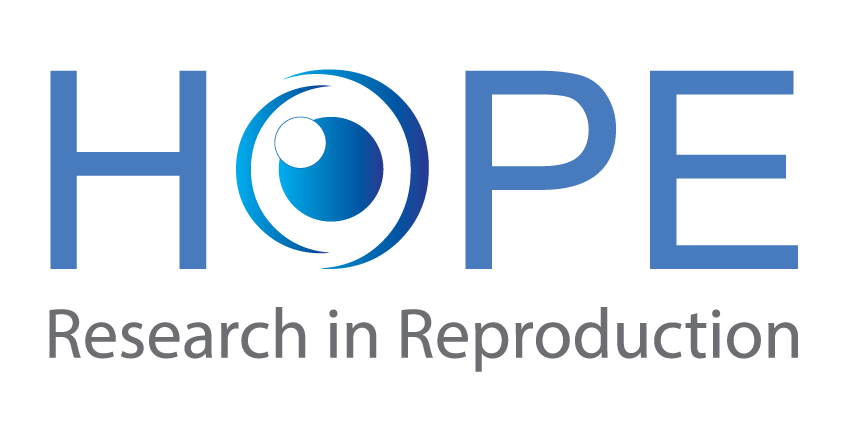Reproductive Biology and Endocrinology 18:45 (2020) – 2020-05-13
Carlo Alviggi1*, Sandro C. Esteves2,3,4*, Raoul Orvieto5,6, Alessandro Conforti1, Antonio La Marca7, Robert Fischer8, Claus Y. Andersen9, Klaus Bühler10,11, Sesh K. Sunkara12, Nikolaos P. Polyzos13, Ida Strina1, Luigi Carbone1, Fabiola C. Bento2, Daniela Galliano14, Hakan Yarali15, Lan N. Vuong16,17, Michael Grynberg18, Panagiotis Drakopoulos19,20, Pedro Xavier21, Joaquin Llacer22, Fernando Neuspiller23, Marcos Horton24, Matheus Roque25, Evangelos Papanikolaou26,27, Manish Banker28, Michael H. Dahan29, Shu Foong30,31, Herman Tournaye19, Christophe Blockeel 19, Alberto Vaiarelli32, Peter Humaidan4,33, Filippo M. Ubaldi32 and on behalf of the POSEIDON (Patient-Oriented Strategies Encompassing IndividualizeD Oocyte Number) group
Published: 13 May 2020
Author information
- Department of Neuroscience, Reproductive Science and Odontostomatology, University of Naples Federico II, Via Sergio Pansini 5, 80131 Naples, Italy
- ANDROFERT, Andrology and Human Reproduction Clinic, Av. Dr. Heitor Penteado, 1463, Campinas, SP, 13075-460, Brazil
- Department of Surgery (Division of Urology), University of Campinas (UNICAMP), Campinas, Brazil
- Faculty of Health, Aarhus University, Aarhus, Denmark
- Department of Obstetrics and Gynecology, Chaim Sheba Medical Center, Ramat Gan, Israel
- The Tarnesby-Tarnowski Chair for Family Planning and Fertility Regulation, Sackler Faculty of Medicine, Tel-Aviv University, Tel Aviv, Israel
- Department of Medical and Surgical Sciences for Children and Adults, University of Modena and Reggio Emilia, Modena, Italy
- Fertility Center Hamburg, Hamburg, Germany
- Laboratory of Reproductive Biology, University Hospital of Copenhagen, Faculty of Health and Medical Sciences, Copenhagen, Denmark
- Center for Gynecology, Endocrinology and Reproductive Medicine, and Stuttgart, Ulm, Germany
- Scientific-Clinical Centre for Endometriosis of the University Hospitals of Saarland, Saarbrücken, Germany
- Department of Women’s Health, Faculty of Life Sciences, King’s College London, London, UK
- Dexeus University Hospital, Barcelona, Spain
- Instituto Valenciano de Infertilidad (IVI), Rome, Italy
- Anatolia IVF, Ankara, Turkey
- Department of Obstetrics and Gynecology, University of Medicine and Pharmacy at Ho Chi Minh City, Ho Chi Minh City, Vietnam
- IVFMD, My Duc Hospital, Ho Chi Minh City, Vietnam
- Service de Médecine de la Reproduction et Préservation de la Fertilité, Hôpital Antoine Béclère, Clamart, France, Université Paris Saclay, Saint-Aubin, France
- Center for Reproductive Medicine, Universitair Ziekenhuis Brussel, Vrije Universiteit Brussel, Brussels, Belgium
- Department of Obstetrics and Gynecology, Medical School, University of Crete, 71110, Heraklion, Crete, Greece
- Unit of Reproductive Medicine, Department of Gynecology and Obstetrics, Hospital Center São João, Porto, Portugal
- Instituto Bernabeu, Alicante, Spain
- Instituto Valenciano de Infertilidad (IVI), Buenos Aires, Argentina
- Pregna Medicina Reprodutiva, Buenos Aires, Argentina
- MaterPrime, São Paulo, Brazil
- Assisting Nature, Centre of Assisted Reproduction and Genetics, Thessaloniki, Greece
- 3rd Department of Obstetrics and Gynecology, Aristotle University of Thessaloniki, Thessaloniki, Greece
- Nova IVF Fertility, Ahmedabad, India
- Department of Obstetrics and Gynecology, McGill University, Montreal, Canada
- Department of Obstetrics & Gynecology, University of Calgary, Calgary, Canada
- Regional Fertility Program, Calgary, Canada
- Fertility Clinic Skive, Skive Regional Hospital, Skive, Denmark
- GENERA, Center for Reproductive Medicine, Rome, Italy
Abstract
The prolonged lockdown of health services providing high-complexity fertility treatments –as currently recommended by many reproductive medicine entities– is detrimental for society as a whole, and infertility patients in particular. Globally, approximately 0.3% of all infants born every year are conceived using assisted reproductive technology (ART) treatments. By contrast, the total number of COVID-19 deaths reported so far represents approximately 1.0% of the total deaths expected to occur worldwide over the first three months of the current year. It seems, therefore, that the number of infants expected to be conceived and born –but who will not be so due to the lockdown of infertility services– might be as significant as the total number of deaths attributed to the COVID-19 pandemic. We herein propose remedies that include a prognostic-stratification of more vulnerable infertility cases in order to plan a progressive restart of worldwide fertility treatments. At a time when preventing complications and limiting burdens for national health systems represent relevant issues, our viewpoint might help competent authorities and health care providers to identify patients who should be prioritized for the continuation of fertility care in a safe environment.
KEYWORDS:
COVID-19, Assisted reproductive technology, Infertility, In vitro fertilization, Intracytoplasmic sperm injection, Poseidon criteria, Viewpoint
